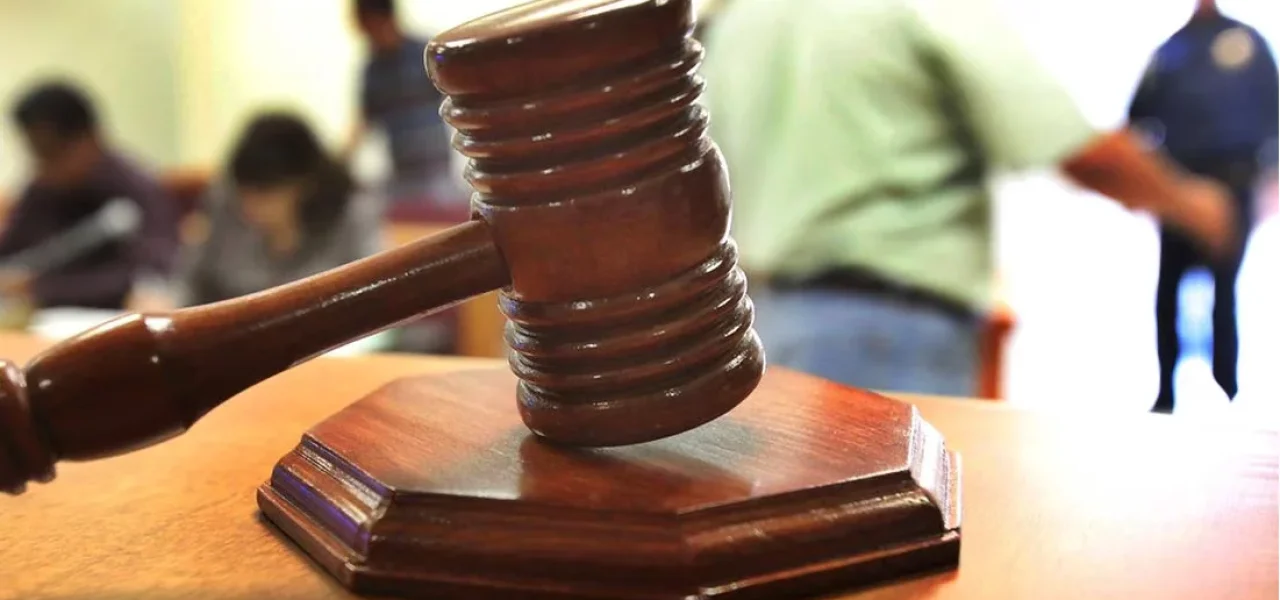This after president Andrés Manuel López Obrador insulted justices and judges, in addition to the fact that his party, Morena, has promoted cuts across the entire judicial power.
“The unfounded attacks against judges are detrimental to the jurisdictional functions that are entrusted to them and detrimental to public order”, the 114 signatories emphasize under the logic, they assure, that the Mexican State, now more than ever, needs to be able to count on a strong and trustworthy Judicial Power comprised by knowledgeable and impartial judges that provide legal certainty to the government and to the governed,
They also state that their existence “makes the exercise of authority possible, obedience bearable and the weight of public power tolerable.”
People like María Marván and Ignacio Morales Lechuga are among the signatories.
In a State with a true and effective division of powers, the Judicial Power is in charge of verifying that all public and private actions are conducted in accordance with the Constitution and the laws. Therefore, it must be strengthened because a true balance in the government depends on it.
The unfounded attacks against judges are detrimental to the jurisdictional functions that are entrusted to them and are detrimental to public order. While the seriousness of this offense is independent of who perpetrates it, the onslaughts are much more injurious when they come from those who declared under affirmation to faithfully uphold and enforce the Constitution; that is, the President of the Republic and the legislators of the Federal Congress.
The Mexican State, now more than ever, needs to be able to count on a strong and trustworthy judicial system comprised by knowledgeable and impartial judges that provide legal certainty to the government and to the governed, Their existence makes the exercise of authority possible, obedience bearable and the weight of public power tolerable.
In response to those who accuse the Judicial Power of interference in the duties of the Legislative Power, suffice it to say, that by constitutional decree, nothing, or very little, falls outside of the review capacity of the judges.
The laws included in our Constitution not only provide the principles under which the division of powers and collaboration between them operate, but also establishes that the heads of the powers are subject to abide by judicial pronouncements.
Judgments and rulings by the courts and judges are appealable, but when they are final, they must be abided by, and they are not open to discussion; this is what upholds the Rule of Law and what strengthens public institutions and allows them to function properly.
The heads of the Powers do not have the authority or the attributions to judge the judgments and rulings of the judges; it is inadmissible that the judges are condemned or that criticism toward the judges that issue these judgments and rulings is disseminated.
A justice, having acted in accordance to law, cannot and must not be condemned for his actions. It is reprehensible that the President of the Republic, the federal legislators, and the Governors of the States criticize, in the spirit of eliminating the counterweight that prevents excesses, the legal rulings or disqualify those who in the exercise of their jurisdictional functions issue them. Thus, the disqualification of judicial pronouncements and the offenses toward justices, supreme court judges or federal or local judges, that issue them violates the Rule of law itself.
On the other hand, it is reprehensible not to abide by the judgments issued by the Inter-American Court against the Mexican State. The government has stated that it is inappropriate that the Inter-American Court should be above the Constitution, which is a reflection of a lack of understanding of Mexico’s position in regard to its international commitments in human rights matters.
The Inter-American Court exercises a special jurisdiction that has been voluntarily accepted by the Mexican Government, that cannot be attributed to the local constitutional courts, as these have been created for defending their constitutions with no possibility of ruling against them. The unrestricted observance of the judgments issued by that Court is unavoidable and imperative.
Another jurisdiction that is affected by official interference is the one exercised by administrative courts, many of which have been deprived of autonomy and impartiality, also with the objective of eliminating the counterweight that prevents excesses.
Jurisdictional functions are in a state of vulnerability at all levels: supranational, Federal, and local. The current state of public affairs demands the decisive protection of judicial independence. As legal professionals, we cannot fail to raise our voices in protest. Keeping silent would make us complicit in the aggressions that are being perpetrated against our justices, supreme court judges, and judges. The Judicial Power must be strengthened.
Mexico City, September 11, 2023
LIST OF THE PEOPLE THAT SIGN THE SPREAD.
- Miguel Alessio Robles
- Marian Alfaro
- Saúl Alfaro Martínez
- Saúl Alfaro Soriano
- Álvaro Altamirano
- Federico Anaya
- Karina Angelortiz aja
- Araceli Aparicio Pavía
- Elisur Arteaga Nava
- Luis Asali Harfuch
- Lorenia Atondo
- Alejandrina Ayala
- Susana Camacho Maciel
- Rogelio Camarillo Flores
- Arianna Castillo
- Adrián Castillo
- Anahí Lucero Castillo
- Mauricio Castrejón Aguado
- Dalia Castro
- Patricia Caudillo
- Luis Alfonso Cervantes Castillo
- Jorge Enrique Cervantes Martínez
- Luis Alfonso Cervantes Muñiz
- José Ramón Cossío Díaz
- Ana Guadalupe Correa Torres
- Héctor de la Cruz Castañeda
- Óscar de la Vega Castillo
- Regina de la Vega Castillo
- Óscar de la Vega Gómez
- José L. Delgado Montoya
- Flavio Díaz Mirón
- Juan José Díaz Mirón
- Luis Enrique Díaz Mirón
- Luis Manuel Díaz Mirón
- José Julián Domínguez Arrollo
- Rafael Estrada Michel
- María del Carmen Elorduy Montes
- Braulio César Escobar Taxilaga
- Oscar Fink
- José Julián Domínguez Arrollo
- Karina Jaqueline France Tellez
- Hugo Freyre
- Hayde Galán González
- Paloma Hernández
- José María Galindo Fuguemann
- Jaime García Priani
- Daniel González
- Ligia González
- Michelle González Ortiz
- Luis Manuel Guaida
- David Gutiérrez Díaz
- Paloma Hernández
- Fátima Iniestra Gil
- Emilio Jaime Sánchez
- Arturo Jaramillo Marmolejo
- Francisco Jiménez
- Laura Jiménez
- Patricia Kurczyn Villalobos
- Marisol Lastiri
- Gerardo Laveaga
- Genaro León Jimeno
- Saturnino Lira
- Felipe López Contreras
- José Luis López Ramírez
- José Antonio Loyo Pérez
- Tomás Lozano Molina
- Teresita Lucía
- David Iván Malagón Monroy
- Gloria Andrea Martínez Castillo
- Ricardo Martínez Rojas
- María Marván Laborde
- Liliana Matlalcuatzin
- Sergio Mena
- Jaime Moctezuma Razo
- José Luis Molina Gómez
- Alejandro Moncada Álvarez
- Ignacio Morales Lechuga
- Miranda Tiaré Morales Mendoza
- Mariana Morán Martínez
- Gabriela Moreno
- Axel Mota
- Mari Carmen Mozas Gómez
- Hermann Müggenburg Rosa
- Arturo Núñez Jiménez
- Juan J Olvera
- Sergio Charbel Olvera Rangel
- José de Jesús Orozco Enrique
- Isabel Margarita Ortiz Aja
- Gerardo Daniel Ortiz Torralva
- María Berenice Oviedo Ramón
- Fernando Jerónimo Patiño Ortiz
- Valente Quintana
- Fernanda Reyes
- Manuel Rodríguez Arriaga
- Jessica Rojas Muñoz
- Liévano Sáenz
- Emanuel Sánchez
- Rafael Sánchez Navarro
- Luis Rolando Santos González
- Dora Sierra
- Kiyoshi Tsuru
- Gonzalo Uribarri
- Alejandro Valbuena
- Claudia Vega Chacón
- Francisco Velázquez
- Lorena Villaseñor
- Claudia María Villalobos Maya
- Margarita Zavala
- Emiliano Zubiria Maqueo
- Fernando Lerdo de Tejada
- José Mario de la Garza Mendizábal
- José Mario de la Garza Marroquín
- Leopoldo de la Garza Marroquín
- César Luquin



